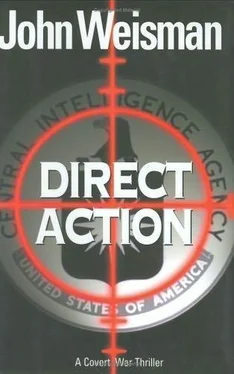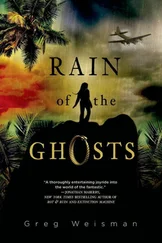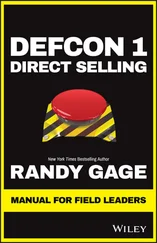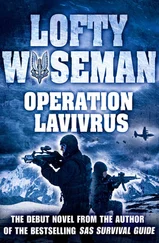In fact, things went a lot further than that. Sure, McGee and his people were bodyguards and chauffeurs. But they were also occasional nurse-maids, part-time guardian angels, and sometimes even confidants. In return, DynCorp paid them $375 a day, seven days a week, plus generous per diem and living expenses.
In McGee’s case, there was also additional income from the Other Job. The job McGee could never talk about. Not to his DynCorp coworkers, not to the ex-wife back in North Carolina who received all of his Army pension and half his DynCorp salary, not even to anyone from the embassy. The spooky job, which was the real reason he’d elbowed his way onto this morning’s trip.
At eleven last night, he’d received a phone call on the special cell phone. To all appearances, it was a wrong number. Except it wasn’t a wrong number. It was a call-out signal from Shafiq Tubaisi, one of the Palestinian gunsels leaning on the dirty Subarus.
McGee’d spotted Tubaisi within his first couple of trips to Gaza. The kid wore American clothing-real Levi’s, which were prohibitively expensive in Gaza, and Ralph Lauren-branded shirts. Turned out they’d been sent by distant relatives living in Dearborn, Michigan. Just about the first words out of Shafiq’s mouth were that someday he wanted to visit the United States. It was an opening line McGee could have driven an Abrams tank through.
He asked about Shafiq’s family-and picked up on the fact that the kid’s father, a pharmacist, was sick and tired of paying kickbacks to the PA and Hamas. He asked his control officer to have the FBI check on Shafiq’s Michigan relatives and was encouraged to find out the Tubaisis were not on any of the homeland security watch lists. McGee began by giving Shafiq little presents. Books of photographs. CDs. DVDs. It took a couple of months, but he finally came over the border solo and pitched the kid.
Shafiq took the hook. McGee set it. He played the kid like a fish, reeled him in, and dropped him in the creel. One reason it went so smoothly, McGee believed, was that it wasn’t a one-way street. For example, the first thing McGee did after Shafiq proved his bona fides by supplying McGee with a list of all the cell-phone numbers and call signs used by the top leaders of Hamas and the Al Aqsa Martyrs Brigades, was to pull strings so the kid’s brother got a visa allowing him to visit the relatives in America, and a couple of hundred bucks from the black-ops slush fund to help with expenses.
Recruit the whole clan, not just one man -that was the couplet McGee’d learned in Afghanistan from his CIA paramilitary colleagues. Obviously, the same poetry worked in Gaza. So, McGee’s operational skills as a spy-albeit limited-were paying off. He was about to recruit his first unilateral agent in Gaza. Three weeks ago McGee had received POA-provisional operational authority-to take Shafiq to the next level. He was ordered to formalize the relationship-give the kid a wad of cash and schedule a polygraph so the agent recruitment process could be completed. And start to apply real pressure. McGee’s bosses wanted him to start developing actionable intelligence.
A Rome-based polygrapher was dispatched to flutter the kid just after Labor Day. But then things began to unravel. Shafiq missed the appointment for the polygraph-and the box man had scheduled only twenty-four hours on the ground. Christ, it would be a month, maybe more, before the test could be rescheduled. Shafiq blew off the next meeting and it was almost the end of the month before McGee saw him again.
Only to be disappointed: the kid came up dry on the al-Qa’ida front. There was no evidence of al-Qa’ida, he insisted. No foreigners in Gaza.
“What about Arabs?” McGee asked.
“There are always Arabs,” Shafiq answered. “Egyptians. Bedou. But none of the al-Qa’ida-the ones from Yemen or Saudi Arabia. I have not seen them.”
McGee began to think he was getting the runaround. But he pressed on, tasking Shafiq to track down the rumors about personnel from the Islamic Revolutionary Guard Corps-Iran’s Seppah-e Pasdaran.
The subject was obviously touchy because Shafiq had gotten nervous the moment McGee said the magic words. Shafiq hemmed and hawed as only Palestinians under pressure can hem and haw. Finally, after an excruciating series of serpentine wavering, flip-flops, vacillations, and equivocations, he whispered that he thought yes, maybe, perhaps, it was possibly possible the Seppah might have a man in Gaza.
McGee’s antenna focused. “What makes you think that?”
“This one man, he came maybe two weeks ago or so, Mr. Jim.”
McGee nodded. Inside, he was seething. Why the blankety-blank had Shafiq waited so long to tell him. McGee controlled his emotions and his breathing. He waited for the Palestinian to continue.
Shafiq took his time. He lit a cigarette. Inhaled deeply. Blew smoke out through both nostrils and his mouth simultaneously. Finally, he took the cigarette out of his mouth. “This one man, he’s different. He moves around constantly. He has his own bodyguards-some are Lebanese from their accents; others speak in a dialect I do not know-and we’re not allowed to bring weapons into his compounds.”
“Compounds?”
“He moves every day and every night. Often twice. They say that sometimes he dresses as a woman.”
“Have you seen him like that with your own eyes?”
Shafiq’s own eyes focused on the ceiling.
“Shafiq-”
The Palestinian dropped his gaze to the floor of the dusty three-room flat just south of the Erez industrial zone McGee used as a safe house and drew a circle with the toe of his shoe. “I saw him only once, Mr. Jim. Only once.”
“Where?”
Shafiq flicked the half-smoked cigarette onto the floor, ground it out, pulled a pack of Marlboros and a Bic from his shirt pocket, lighted a new one, and exhaled noisily. “In Gaza City. Coming out of a house on Mustafa Hafez Street behind the Islamic University.” The Palestinian found something else on the floor to focus on. “I was assigned to guard the end of the street for three days,” he mumbled. “That’s why I couldn’t make the last meeting.”
McGee’s tone hardened. “You didn’t tell me.”
The kid’s eyes finally shifted past McGee’s face. “You didn’t ask.”
“All right, Shafiq,” McGee nodded. “Go on.”
“I saw him when he came through the gate and got into the car.”
“What does he look like?”
“It was dark. The windows of the car had curtains.”
“Then how do you know it was him?”
Shafiq shrugged. McGee edged his chair closer to Shafiq’s and stared coldly at the Palestinian. Quickly, Shafiq looked away. It was a cultural thing with Arabs. They detested being stared at; scrutinized. McGee knew it and was instinctively using body language to keep his agent off balance. It was, he’d discovered, an effective way of asserting control. McGee waited the kid out. Finally, Shafiq said, “I did see him, Mr. Jim.”
“ Feyn -where?”
“On Mustafa Hafez Street when I was a part of the security detail. I did see him get into the car.”
“And?”
“He is shorter than you with dark hair.”
That wasn’t much help. “His face-round? Long? Square?”
Shafiq thought about it. “Round. But angular. A prominent nose, but not too big. Heavy eyebrows-like one big eyebrow.”
“Beard?” Most of the Seppah had facial hair.
“No.” Shafiq rubbed his index finger back and forth under his nose as if stifling a sneeze. “But a mustache like Saddam Hussein.”
“How did he dress?”
“Dark trousers, white shirt with no collar, I think. Dark leather jacket.”
The guy dressed more like a Hezbollah car bomber from Beirut’s southern suburbs than a Seppah operator. McGee mentally tagged him Mr. ML, for Mustached Lebanese.
Читать дальше












